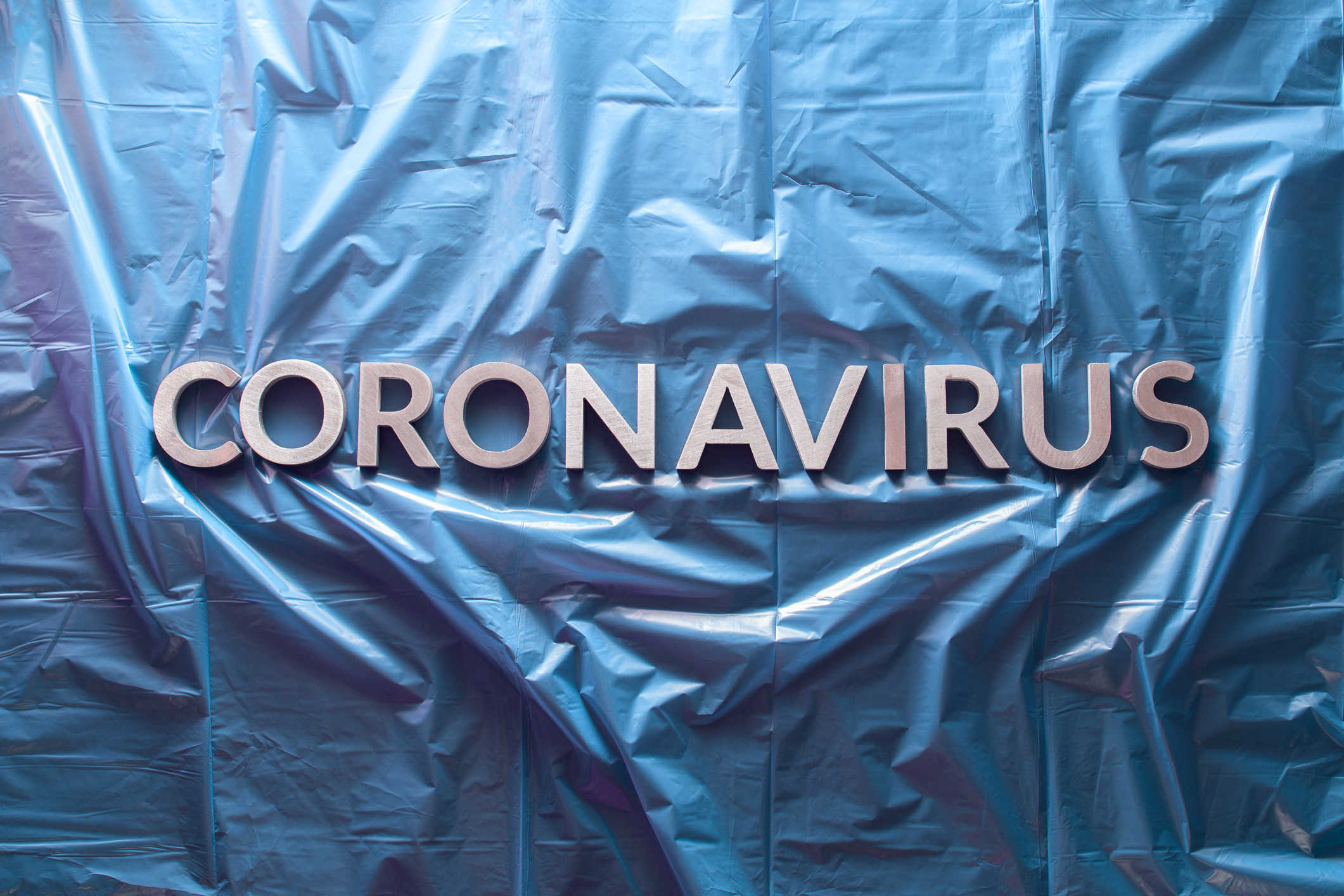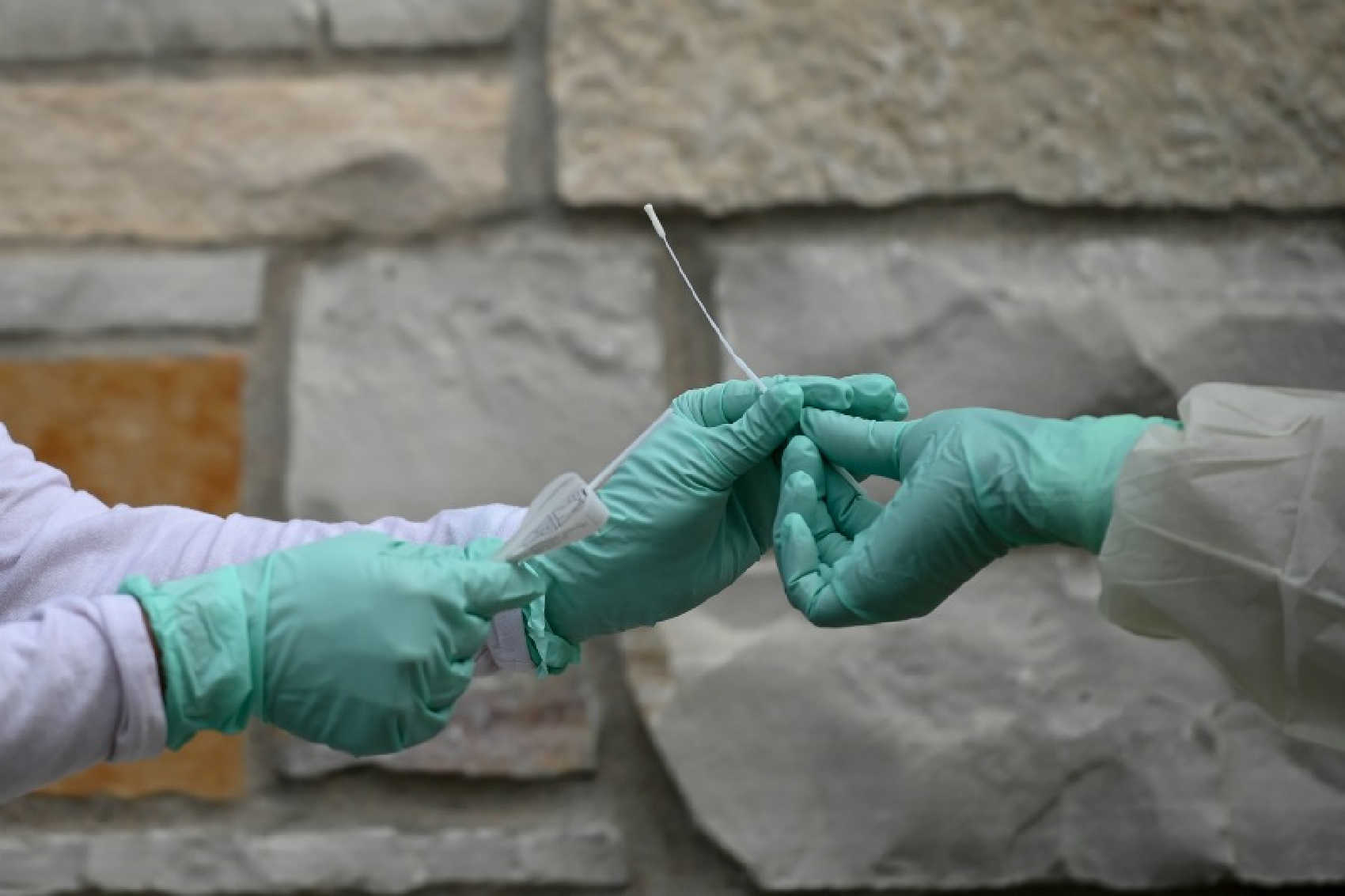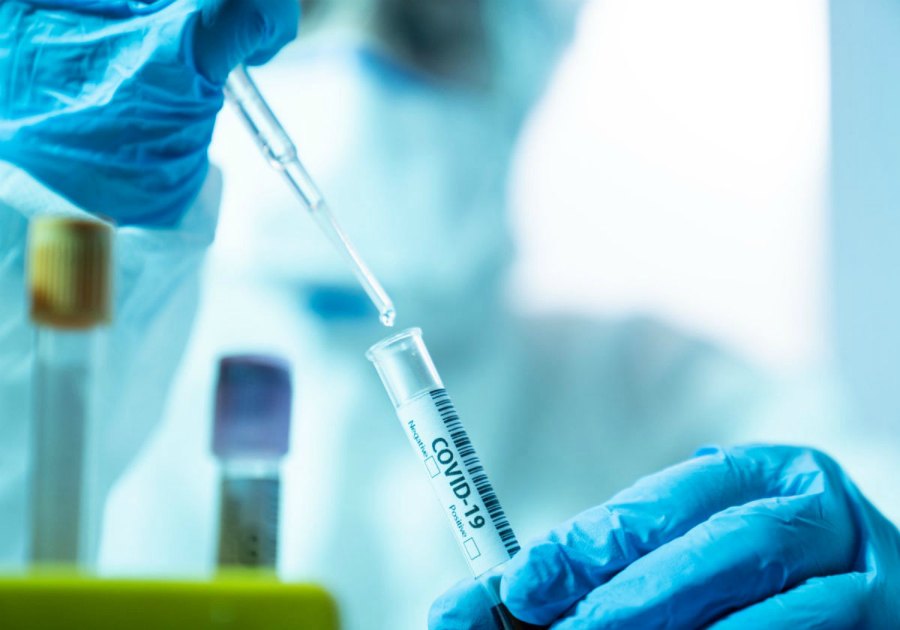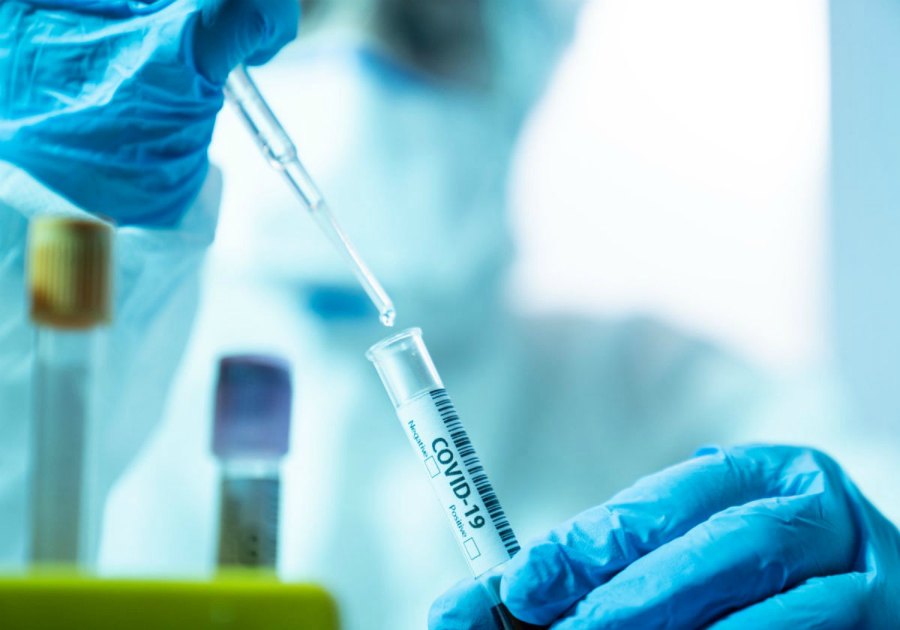Coronavirus
Transition in the Virgin Islands: Transitioning from Free COVID-19 Testing to a New Normal

In a significant development that marks a turning point in the Virgin Islands’ battle against COVID-19, the Department of Health has announced the cessation of its free testing program. This decision, effective immediately, comes as federal funding for this initiative has been fully utilized. Alongside this, the COVID-19 hotline, a critical resource during the pandemic’s peak, will also be discontinued.
This strategic shift reflects a broader public health consensus, treating COVID-19 as an endemic presence rather than an emergent crisis. This approach mirrors the management of other respiratory illnesses, such as the influenza virus, emphasizing vaccination and preventive practices.
Health Commissioner Justa Encarnacion highlighted the territory’s successful management of the virus thus far, noting the sustained low levels of reported cases and hospitalizations. Encarnacion underscored the importance of continued vigilance and routine vaccination in the face of COVID-19’s persistence within our communities.
Reinforcing this new direction, the Centers for Disease Control and Prevention recently updated their guidelines, recommending that COVID-19 precautions be integrated with measures for influenza and other respiratory viruses.
The Virgin Islands’ testing initiative, which conducted over 500,000 tests and identified more than 26,000 COVID-19 cases, has been instrumental in the territory’s response to the pandemic. The virus claimed 133 lives in the Virgin Islands, a somber reminder of the pandemic’s impact.
With the closure of the free testing program, Dr. Esther Ellis, the territorial epidemiologist, advises individuals who suspect they might have contracted COVID-19 to seek testing through private laboratories or their healthcare providers. Additionally, home testing kits are readily available at pharmacies throughout the territory, offering a convenient alternative for self-diagnosis.
This transition marks a new chapter in the Virgin Islands’ public health strategy, moving towards a sustainable approach in managing COVID-19 alongside other endemic diseases.
Coronavirus
US Virgin Islands Leads the Nation in Combatting Long-COVID, CDC Reveals

A recent study by the Centers for Disease Control and Prevention (CDC) has spotlighted the U.S. Virgin Islands for achieving the lowest Long-COVID rates in the United States, underscoring the territory’s effective health measures and response to the pandemic. This analysis, detailed in the CDC’s Morbidity and Mortality Weekly Report, indicates a significant variance in Long-COVID occurrences across different regions.
Long-COVID, characterized by a spectrum of persistent health issues following an acute COVID-19 infection, ranges from mild cognitive impairments, commonly referred to as “brain fog,” to severe fatigue and extensive organ damage. This condition, affecting millions globally, illustrates the prolonged battle many face even after recovering from the initial virus attack.
Remarkably, the study highlights the U.S. Virgin Islands’ success in minimizing these long-term health consequences, with only 1.9% of its population reporting Long-COVID symptoms. This contrasts sharply with regions like West Virginia, where the rate soars to 10.6%. The study also points out that states such as Alabama, Montana, North Dakota, Oklahoma, Tennessee, and Wyoming have reported rates exceeding 8.9%, while Guam and Washington D.C. join the USVI in demonstrating the lowest prevalence, with figures ranging from 1.9 to 3.6 percent.
It’s important to note the CDC’s acknowledgment of the limitations within this study, including the absence of data on vaccination status, the treatments received during the active COVID-19 phase, the timing of infection, and the duration and intensity of symptoms—all factors that could significantly affect the prevalence of Long-COVID.
The findings from this report are anticipated to inform and guide local policy-making, planning, and programming efforts to address the healthcare needs of individuals suffering from Long-COVID. The U.S. Virgin Islands stands as a model of resilience and effective health management, providing valuable insights into strategies that can mitigate the impact of Long-COVID and enhance public health outcomes.
Coronavirus
Updated Moderna and Pfizer Covid Vaccines to Arrive in the US Virgin Islands, Targeting New Variant

The Health Department of the U.S. Virgin Islands (USVI) recently revealed plans to receive the first shipments of the newly formulated Moderna and Pfizer-BioNTech Covid-19 vaccines. The updated vaccines are set to arrive by the end of this week, bolstering the territory’s defense against the latest XBB.1.5 variant of the virus.
This significant update follows last week’s endorsement from the Centers for Disease Control and Prevention (CDC) and the Food & Drug Administration’s (FDA) subsequent approval. The incoming shipment is part of a nationwide rollout, designed to make the modified vaccines the primary Covid-19 immunization available during the forthcoming fall season.
In a recent statement, Health Commissioner Justa Encarnacion urged residents, especially those more vulnerable to severe illness, to schedule appointments for the new vaccine. “This updated vaccine formulation will be available to all individuals who are six months of age or older,” Encarnacion said. To facilitate efficient vaccine distribution, the department will only be offering the shots by appointment.
For those looking to reserve an appointment, the department directs residents to the official website at https://www.covid19.usvi.care/. Alternatively, you can reach out to the Health Hotline at (340) 712-6299 for residents of St. Croix and at 340-776-1519 for those in St. Thomas-St. John. This hotline is operational between 8 a.m. and 5 p.m., from Monday to Friday, except for public holidays.
Encarnacion took the opportunity to encourage those who have yet to receive their first Covid vaccine. “If you haven’t been vaccinated yet, this is an ideal time,” she stated. Data indicate that the new formulation significantly lowers the risk of severe illness, hospitalization, and death caused by the virus. A single dose of this updated vaccine will suffice for individuals to be up-to-date with their immunization schedule.
In accordance with CDC guidelines, if you have recently been diagnosed with Covid-19, you should wait at least three months before getting the updated vaccine. Similarly, those who have completed their original Covid-19 vaccine series should delay for at least two months.
The Health Department also reminded the public that it’s acceptable to get both the flu vaccine and the Covid vaccine at the same time.
Lastly, the updated Covid vaccine will be free for the vast majority of American citizens, courtesy of private healthcare insurance and Medicare. For those without sufficient insurance, vaccines can be obtained for free at community health centers and pharmacies under the CDC’s Bridge Access Program, which aims to ensure equitable access to Covid-19 vaccines until December 2024.
Coronavirus
FDA Greenlights Revised Moderna and Pfizer COVID-19 Vaccines for 2023-2024

The U.S. Food and Drug Administration (FDA) has granted the nod for the release and emergency use of revamped Covid-19 mRNA vaccines tailored for the 2023-2024 health calendar.
The freshly-minted vaccines, produced by pharmaceutical giants Moderna and Pfizer, have been specifically designed to counter the strains in circulation, with a spotlight on the Omicron variant XBB.1.5. This move is in alignment with the FDA’s commitment to bolstering defenses against grave health implications like intensive hospitalization and fatalities.
The green signal from the FDA denotes that individuals aged 5 and up, regardless of their vaccination history, are eligible for a booster shot of the latest mRNA vaccine iteration. This can be administered a minimum of two months post their most recent Covid-19 vaccine dose. For the younger demographic, specifically infants from 6 months to 4 years with a vaccination track record, the dosing varies based on their earlier vaccine type. Those yet to be introduced to vaccination within this age bracket qualify for a three-dose regimen of the revamped Pfizer-BioNTech vaccine or a two-shot course with Moderna.
Peter Marks, at the helm of the FDA’s Center for Biologics Evaluation and Research, underscored the paramountcy of inoculation in the health sphere. “Rest assured, these amended vaccines have successfully cleared the FDA’s stringent benchmarks in safety, potency, and production excellence. We wholeheartedly advocate for those in the eligible bracket to lean into this vaccination opportunity,” he articulated.
These new-gen mRNA vaccines have secured endorsement for those 12 and older, and have been earmarked for emergency deployment for those between 6 months and 11 years. Coinciding with this, earlier formulations of the Moderna and Pfizer-BioNTech vaccines have been officially phased out within the U.S.
Supported by manufacturing analytics and immunity trajectory research, the FDA has expressed confidence in the revamped vaccines’ efficacy against the mutating virus strains. Analogous to the flu shots that see periodic updates, unless an aggressively potent variant surfaces, Covid-19 vaccines might also witness seasonal recalibrations.
Today, the U.S. Centers for Disease Control and Prevention’s Advisory Committee on Immunization Practices is slated to convene, with the agenda primed on crafting enhanced clinical directives, especially for niche cohorts such as the immunocompromised and senior citizens.
The vaccine manufacturers have relayed that the latest entrants to the vaccine arsenal will hit the market come autumn. This is a testament to the FDA’s unwavering endeavors to stay apace with the pandemic’s trajectory, buttressed by robust datasets from myriad studies and extensive vaccine rollouts.
Key modifications encapsulate transitioning to a solitary dose strategy for Comirnaty (COVID-19 Vaccine, mRNA) for those aged 12 and above, and a similar one-shot regimen for Spikevax (COVID-19 Vaccine, mRNA) for individuals 18 and upwards. Tailored dosing plans have also been greenlit for distinct immunocompromised segments aged between 6 months and 11 years.
The updated Comirnaty concoction’s approval baton has been passed to BioNTech Manufacturing GmbH, while Pfizer Inc. bagged the emergency usage amendment accolade. On the flip side, ModernaTX Inc. clinched the accolades for both the refreshed Spikevax formula and its corresponding emergency application.
-

 Education1 year ago
Education1 year agoCTE Board Enthusiastic About New Curriculum Standards, Yet Anxious Over Apprenticeship Support
-

 Education8 months ago
Education8 months agoEducation Board Seeks Input on Schools Through Comprehensive Survey
-

 Crime1 year ago
Crime1 year agoRegistered Sex Offender Detained for Illegal Firearm Possession During Annual Surveillance Drive
-

 Development6 months ago
Development6 months agoCosts Surge as Donoe Estates Housing Project Resumes with New Contractor
-

 Crime1 year ago
Crime1 year agoSt. John’s Westin Resort Scene of Armed Robbery, Prompting Heightened Police Vigilance
-

 Videos2 years ago
Videos2 years ago2022 Gubernatorial Election: Voters Speak Out
-

 Videos2 years ago
Videos2 years agoGubernatorial Teams Celebrate St. Croix’s Bull & Bread Day
-

 Crime1 year ago
Crime1 year agoUnraveling the Home Invasion in St. John: Suspect Held on $100,000 Bail





